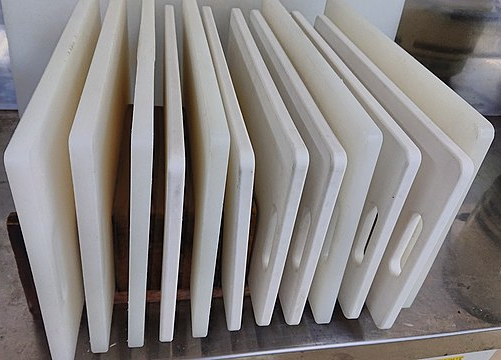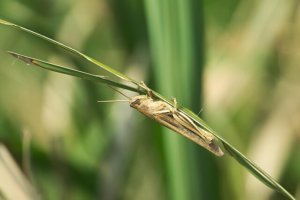Ditching plastic cutting boards can be beneficial for several reasons, encompassing health, and practical considerations:

Health Concerns
- Microplastic Contamination: Over time, plastic cutting boards can develop deep grooves and scratches from knife use. These grooves can harbor bacteria and are difficult to clean thoroughly. Additionally, small plastic particles can break off and get into your food, contributing to microplastic ingestion.
- Chemical Leaching: Some plastic cutting boards may contain harmful chemicals like BPA (Bisphenol A) or phthalates, which can leach into food, especially when cutting acidic foods or exposing the board to heat.
Practical Issues
- Durability: While plastic cutting boards are initially durable, they wear out relatively quickly compared to alternatives like wood or bamboo. This means they need to be replaced more frequently, leading to more waste and higher long-term costs.
- Knife Damage: Plastic cutting boards can be harder on knife edges compared to softer materials like wood, causing knives to dull more quickly and requiring more frequent sharpening or replacement.

Alternatives to Plastic Cutting Boards
- Wood: Wooden cutting boards, particularly those made from hardwoods like maple or walnut, are durable, naturally antibacterial, and easier on knife edges. They are also biodegradable and can be sustainably sourced.
- Glass: Glass cutting boards are non-porous, easy to clean, and do not harbor bacteria. However, they can be hard on knives and may be prone to breaking or chipping. These can also dull your knives more quickly (this is the reason Wood is our first choice).
Switching to these alternatives can enhance food safety and reduce environmental impact!
More Stories
Unveiling the Secret Ingredient: How Crickets are Already in Our Food
Photo: Neil.Dalphin Cricket powder stands as a promising solution to the global challenge of sustainable food production. However, as with...
With Grocery High Prices, We Have To Think Outside The Box!
Photo: Michal Klajban I don’t know about you, but every time I go to the grocery store, I am continually...
Life & Yoga: Remember to Breathe!
Losing weight is a relatively easy concept; eat less and move more. Yet, weight loss is a $60 billion dollar...
GMO (Genetically Modified Organism) What Is The Big Deal?
Since there is not a complete list of products that contain GMO’s it is hard to know if the food...
Can Going Gluten-Free Cause Nutrient Deficiencies?
Photo: Mark Morgan As a Holistic Health Counselor, I’m not interested much in mainstream nutritional recommendations. For my clients, I...
5 Key Ingredients That Your Body Needs Every Day
Photo: George Chernilevsky I thought I’d take a moment to introduce myself & welcome you to my delicious world of...


